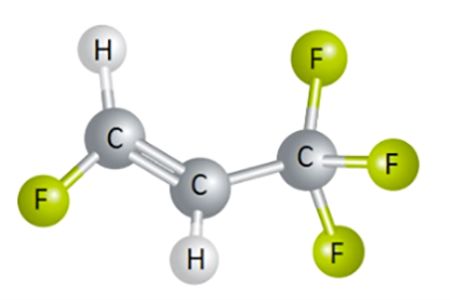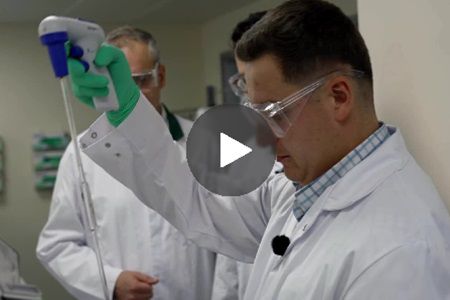The future of metered dose inhalers (MDI) demands both technical excellence and environmental responsibility. Explore how Solstice® Air is transforming MDI technology through non-flammable, sustainable propellant solutions.
See the science behind Solstice Air MDI medical propellant in our latest technical insights series of videos.
Our next installments will explore the latest advancements, applications, and regulatory considerations surrounding MDI technology. Complete our contact form below to receive alerts.


Earth-Friendly
Near-Zero GWP vs. 134a, 227ea and 152a


Good Safety Profile
Pre-clinical toxicity studies concluded a good safety profile for use in Metered Dose Inhalers.


Important Global Solution
Next Generation HFO technology provides excellent solutions to the global phase-down of high-GWP HFCs under the Kigali amendment to the Montreal Protocol.


Non-flammable
A UN class 2.2 non-flammable liquefied gas. It is classified as non-flammable according to EC A11 and ASTM E681.
Why Solstice Air is a Gamechanger for the Pharmaceutical Industry?
As many as 384 million people suffer from chronic obstructive pulmonary disease (COPD), a progressive respiratory disease, and 339 million children and adults suffer from asthma.1,2 Many of these patients are currently treated using pressurized metered dose inhalers (pMDIs) that use hydrofluorocarbons (HFCs) that can contribute to the global carbon footprint of respiratory care. Honeywell’s Solstice Air (HFO-1234ze(E) cGMP) is an alternative technology as a medical propellant, reducing the greenhouse gas emissions of pMDIs by up to 99.9% when compared to current inhaler propellants. Solstice Air is the only non-flammable, near-zero GWP propellant available and in clinical development today for pMDIs.



Honeywell Solstice® Air is an alternative to HFCs in MDI
Solstice Air is VOC-exempt per the U.S. Environmental Protection Agency (EPA) and the California Air Resource Board (CARB).


Eliminating Greenhouse Gas Emissions One Breath at a Time
Solstice Air (HFO-1234ze(E), cGMP) can reduce greenhouse gas emissions of propellant by up to 99.9% vs. current inhaler propellant.


Solstice Air – Physical Properties
Solstice Air’s full chemical name is trans- 1,3,3,3-tetrafluoroprop-1- ene, also known as HFO-1234ze(E). Its INCI name is tetrafluoropropene.
Physical Properties of Solstice Air*


To download the technical datasheet or for more details on Solstice Air propellant properties, environmental properties, compatibility, stability, toxicity, storage and handling, fill the contact us form below.
*These are just some of a mosaic of properties that must be considered in identifying a suitable propellant.
Ready to Test Solstice Air?
Samples of Solstice Air are available for testing. To request a sample, please complete the form below.
Get inTouch
Join our mailing list to receive the latest updates, or talk to a member of our team and explore how Solstice Air can work for you.
1 Bodkin, Henry (2019-04-08). "Asthma inhalers as bad for the environment as 180-mile car journey, health chiefs say". The Telegraph. ISSN 0307-1235
2 World Health Organization. The top 10 causes of death. [Online. Available at: https://www.who.int/news-room/fact-sheets/detail/the-top-10-causes-of-death]
*These are just some of a mosaic of properties that must be considered in identifying a suitable propellant.






